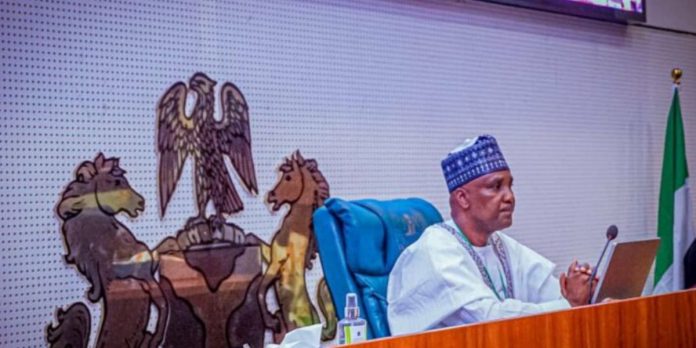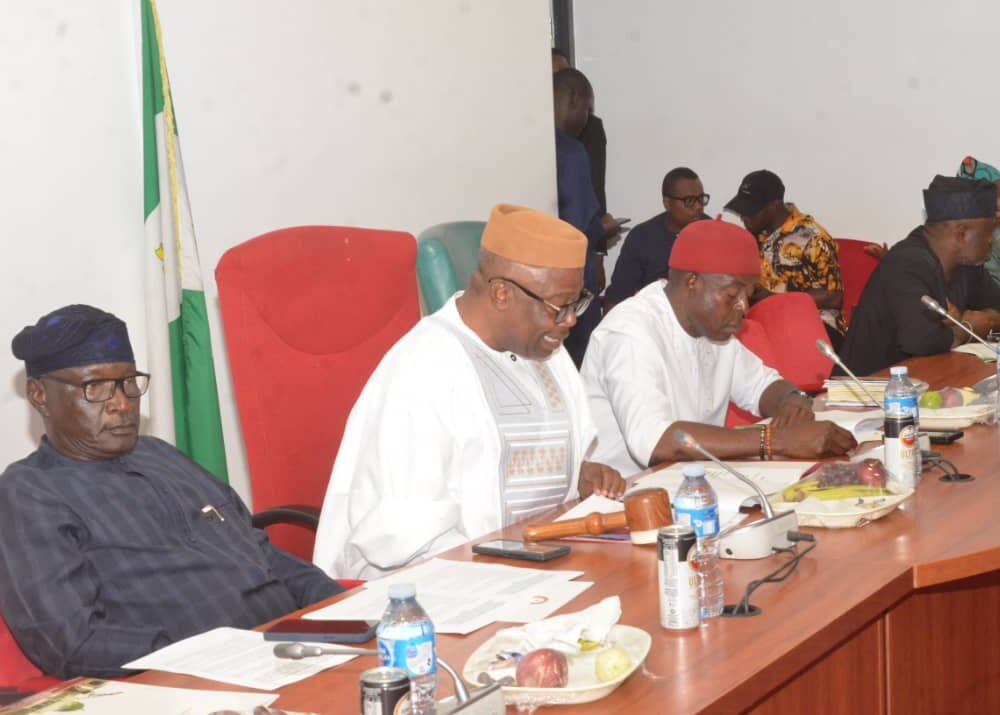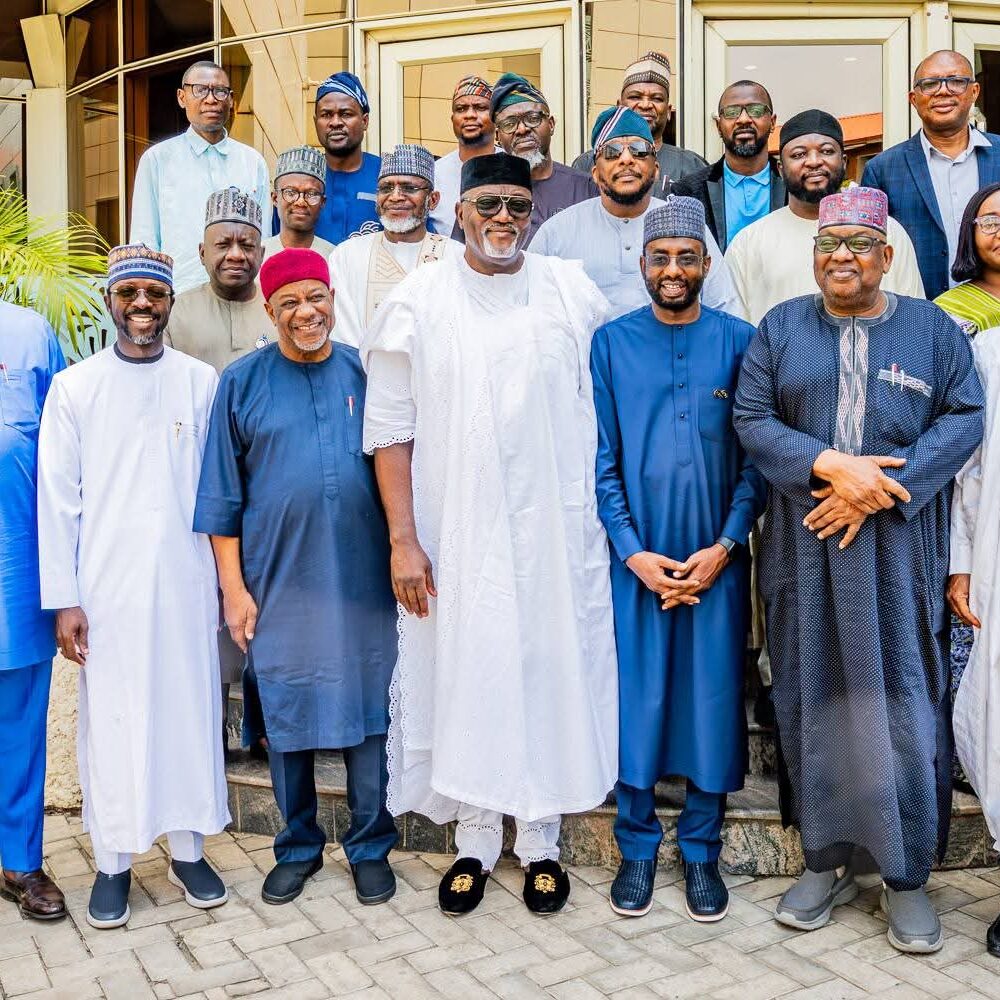The Speaker of the House of Representatives, Rt. Hon. Abbas Tajudeen has addressed the growing concerns and discussions surrounding the “Counter Subversion Bill, 2024 (HB. 1652),” which he sponsored.
Recall that it was earlier reported that the lower chamber is proposing a bill that prescribes, among others, that “anyone found guilty of destroying national symbols, refusing to recite the national anthem and pledge, defacing a place of worship with intent to incite violence, or undermining the Federal Government shall face a fine of N5 million, a 10-year prison sentence, or both.”
The development has generated mixed reactions from Nigerians and civil societies.
The Take It Back Movement condemning the Counter Subversion Bill 2024 in a statement co-signed by the movement’s National Coordinator, Juwon Sanyaolu, and Public Relations Officer, Stephen Olabiyi, said the bill threatens Nigerians’ fundamental rights and contradicts the core principles of freedom of speech, movement, and assembly that underpin democracy.
The TIBM demanded that the bill be discarded and not be passed into law while charging the House of Reps to prioritize more critical concerns such as widespread hunger and the pervasive poverty, which had severely impacted the people of Nigeria.
The statement reads, “We at the Take It Back Movement vehemently condemn the proposed Counter Subversion Bill introduced on August 14th, 2024, by Tajudeen Abass, Speaker of the House of Representatives.
“This bill threatens the fundamental rights of Nigerians, and it seeks to impose excessive penalties on citizens for refusing to recite the national anthem. It also criminalizes civil actions deemed subversive to the government.
“This proposed legislation contradicts the core principles of freedom of speech, assembly, and demonstration that underpin any democratic society.
“Hence, we demand that this bill should be discarded and not be passed into law; rather, the government should redirect its efforts toward tackling the underlying factors that contribute to discord and strife within our country.
“We further charge the House of Representatives to prioritize critical concerns such as widespread hunger, rampant mismanagement, and pervasive poverty, which have severely impacted the people of Nigeria.”
The group said it perceived the legislation as an effort to stifle the rights of Nigerians, adding that it “unequivocally” denounced the “proposed repressive legislation”, vowing to protect the constitutional rights of Nigerians.
Reacting to the concerns, the Speaker, in a statement signed by Special Adviser on Media and Publicity to the Speaker, Musa Krishi, expressed his appreciation for the interest Nigerians have shown in the Bill, acknowledging that it touches on critical aspects of national security.
He said, “The attention of the Speaker, House of Representatives, Rt. Hon. Abbas Tajudeen, Ph.D has been drawn to reports in sections of the media about the Counter Subversion Bill, which he sponsored.
“The Speaker appreciates the interest Nigerians have so far shown on the Bill, which pertains to our national security.
“However, it has become necessary to make the following clarifications, considering the tilted reports and misconceptions about the Bill:
“The Counter Subversion Bill, 2024 (HB. 1652) was introduced on the floor of the House of Representatives on Tuesday, July 23, 2024, with Speaker Abbas Tajudeen, Ph.D. as the sponsor. Thus, the Bill is still at the introductory stage.
“The Bill falls within the realm of Nigeria’s anti-terrorism framework, and it seeks to address subversive activities by associations, organisations, militias, cults, bandits, and other proscribed groups in Nigeria.
“Similar legislation obtains in other climes with varied appellations. Such countries include the United Kingdom, Spain, India, Turkey, Canada, Australia, among others.
“The Speaker, and by extension the House of Representatives, which is the People’s House, welcome robust engagements and discussions from Nigerians on the contents of the Bill, and how best to address the concerns raised.
“By Parliamentary processes and procedures, the Bill would have to be listed for Second Reading, where Members will thoroughly scrutinize its merits and demerits during debate. At this stage, Members can decide to ‘kill’ or allow the Bill to pass. But if it scales Second Reading, it would be referred to the relevant Committee of the House for further legislative action.
“The Committee must as a matter of responsibility invite the Nigerian public, particularly relevant stakeholders, to a public hearing on the Bill. It is expected that citizens would bear their minds either physically or via memoranda on the Bill. Their inputs would form the basis for the Committee’s report, to be laid on the floor of the House.
“After the consideration of the report, the Bill will be passed for the Third Reading and forwarded to the Senate for concurrence. If the Senate deems it fit and concurs with the Bill, a clean copy would be transmitted to the President for assent. Mr. President reserves the right to withhold assent to the Bill.
“The Speaker assures Nigerians that the Bill is all-encompassing as it relates to Nigeria’s national security and does not target any group or section of the country.
“Speaker Abbas Tajudeen, Ph.D further promises that the Bill, and indeed any other draft legislation before the House, will pass through all the legislative processes, and Nigerians would have ample opportunity to make their inputs, which will constitute the final consideration (or otherwise) of the Bill.”





